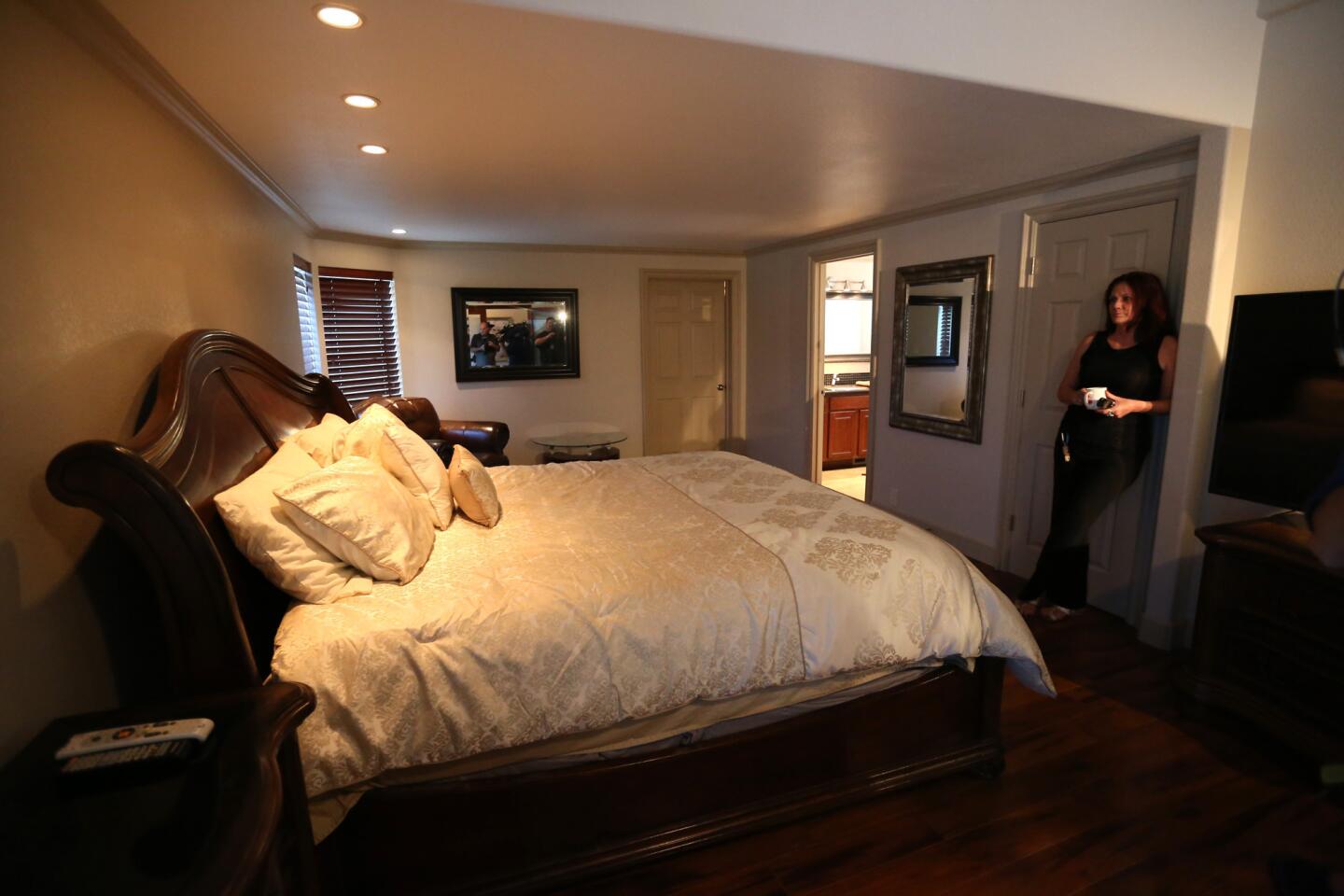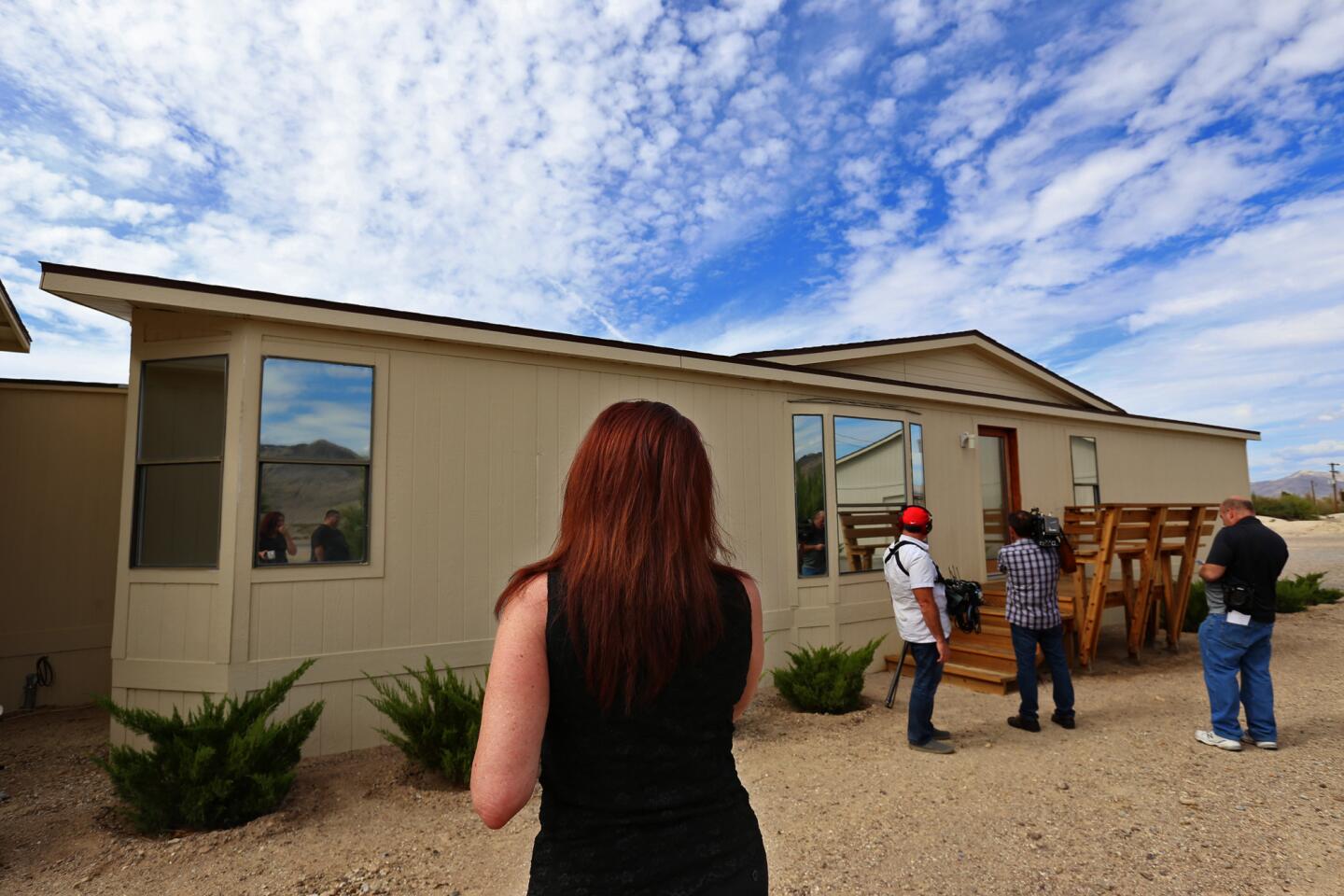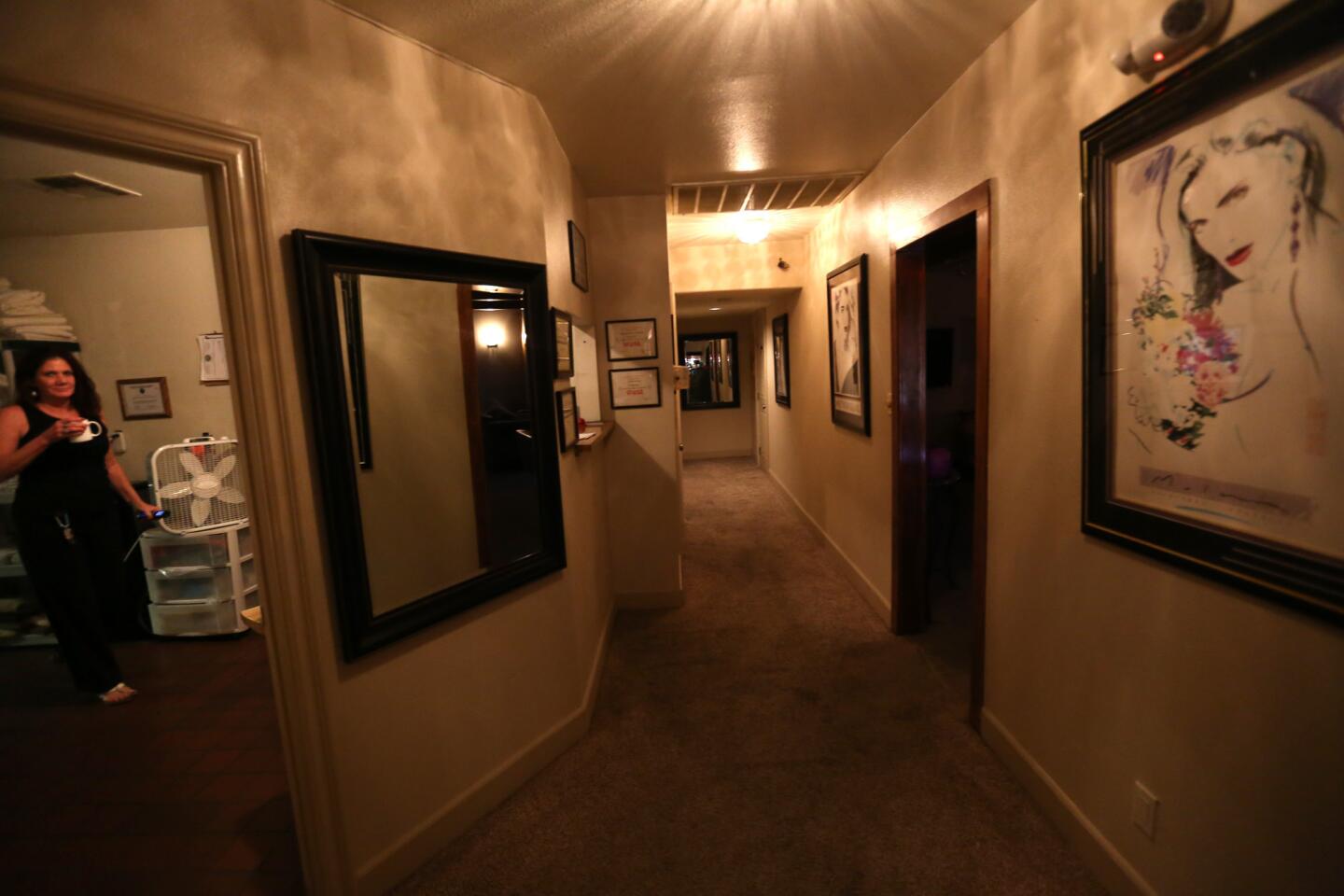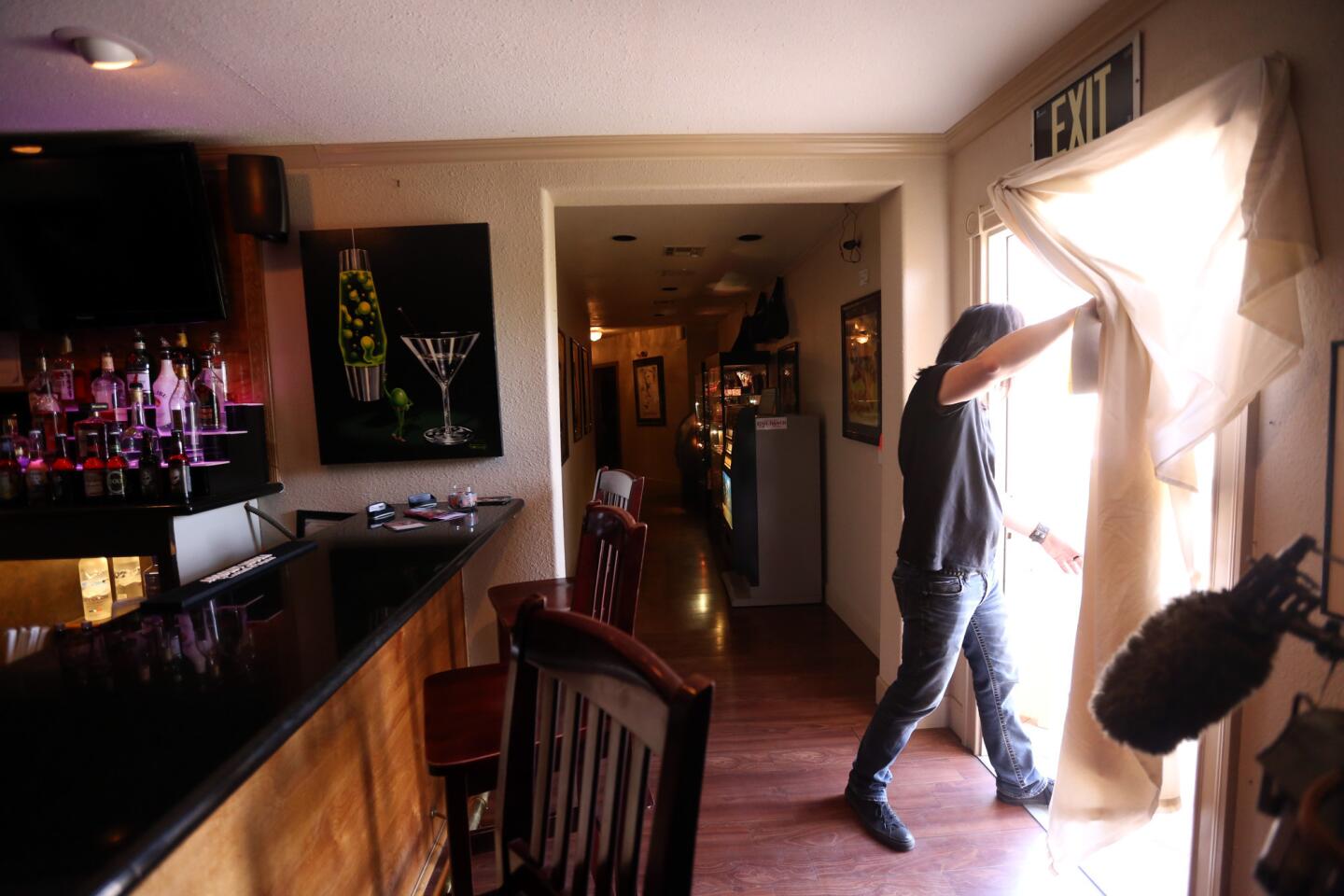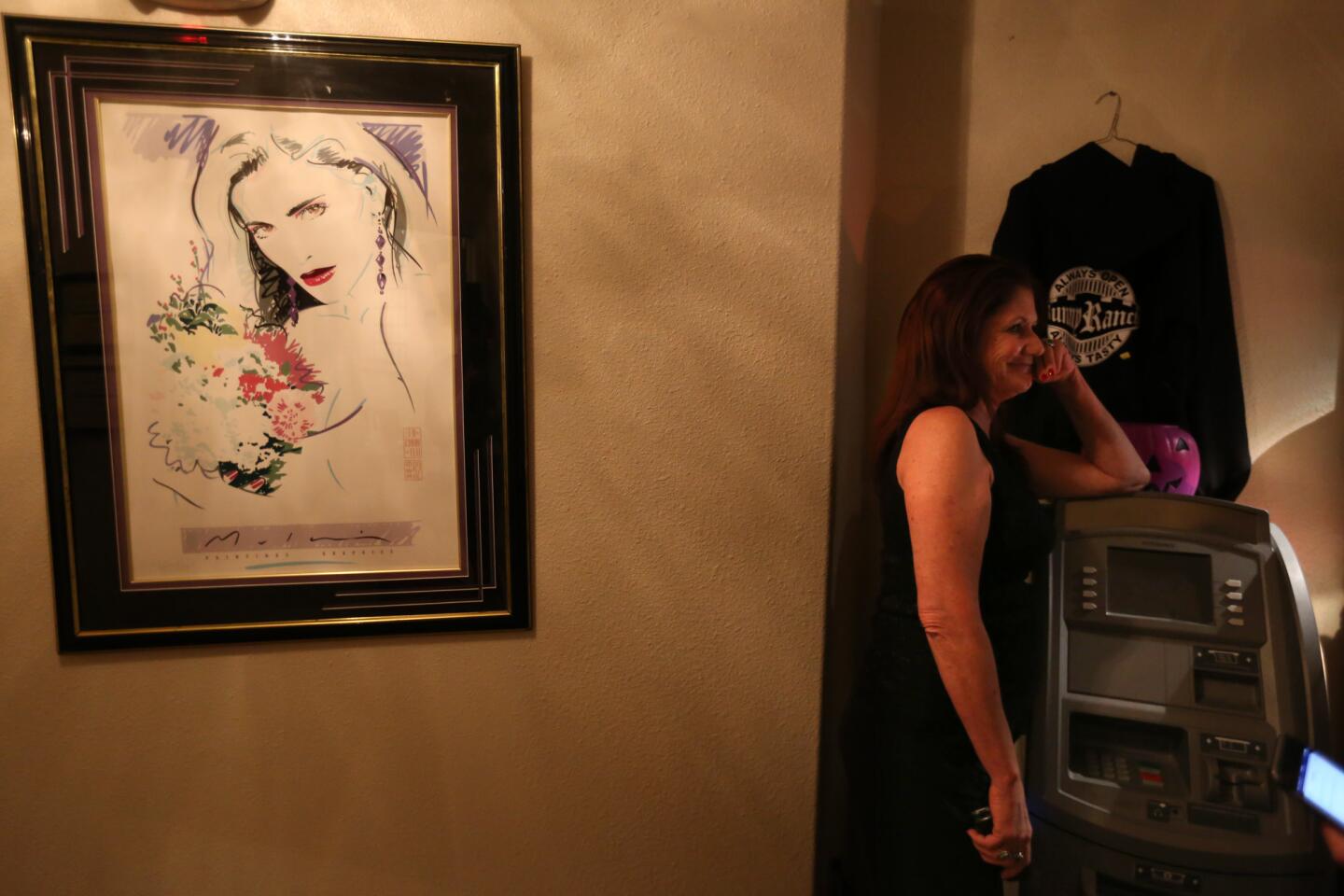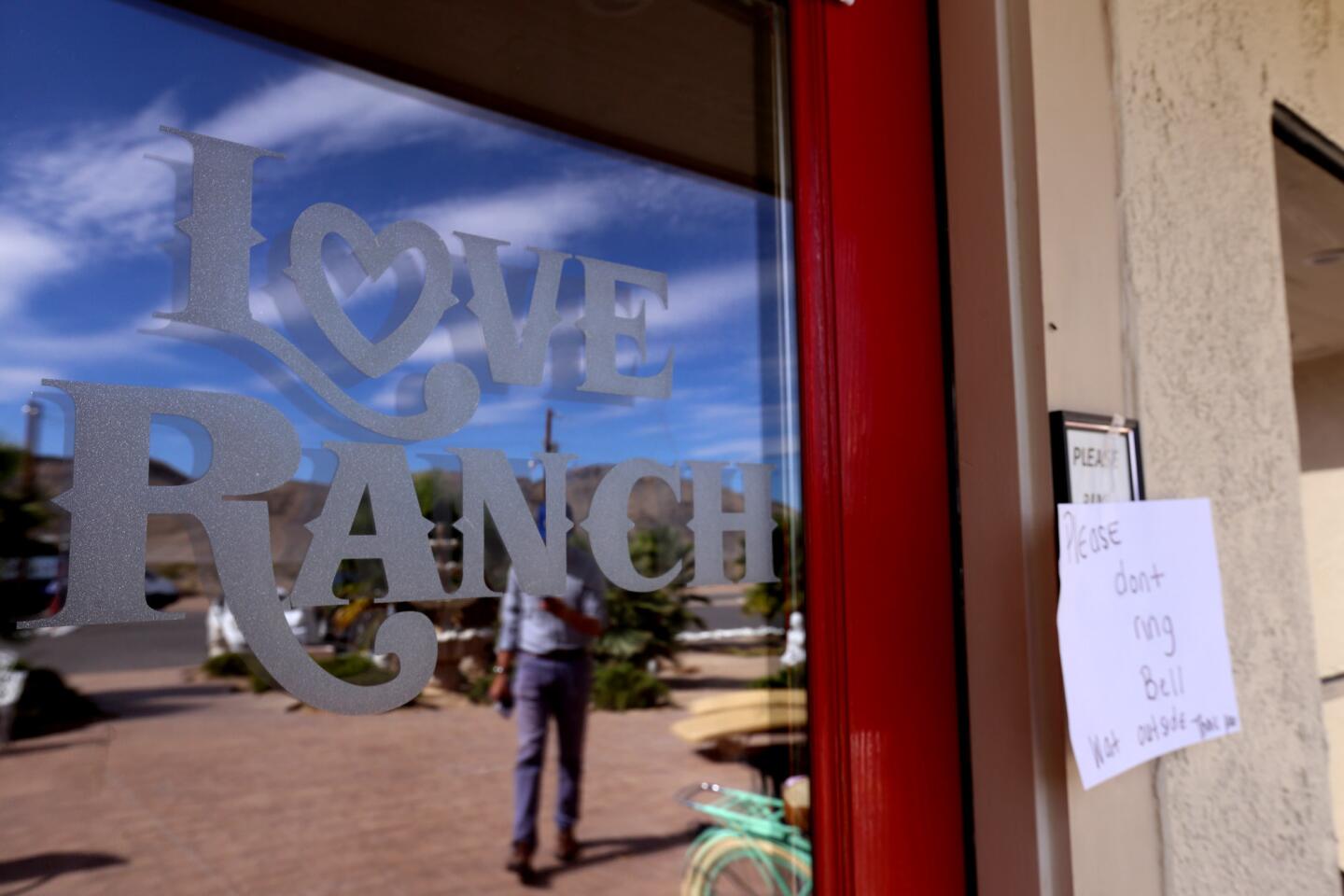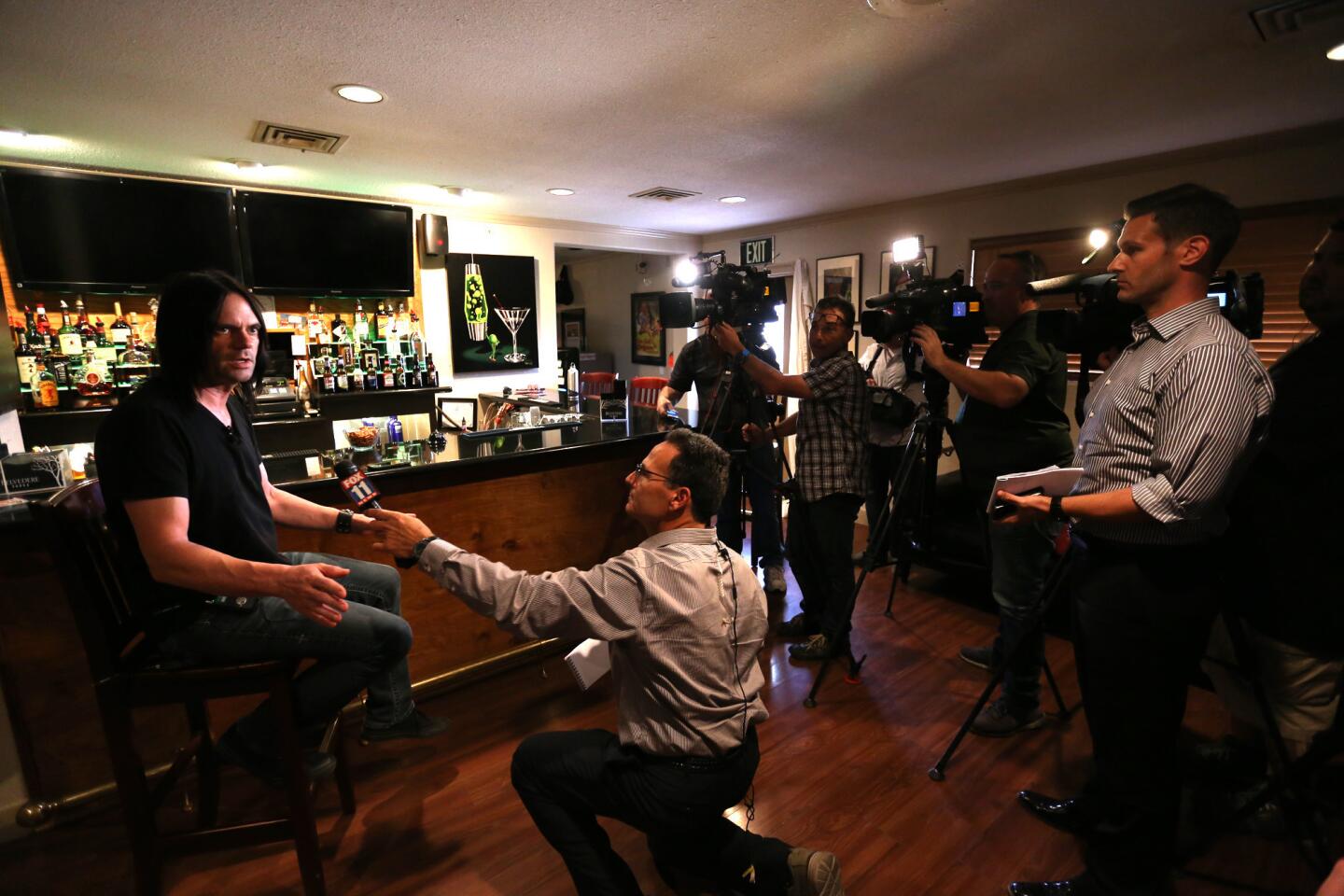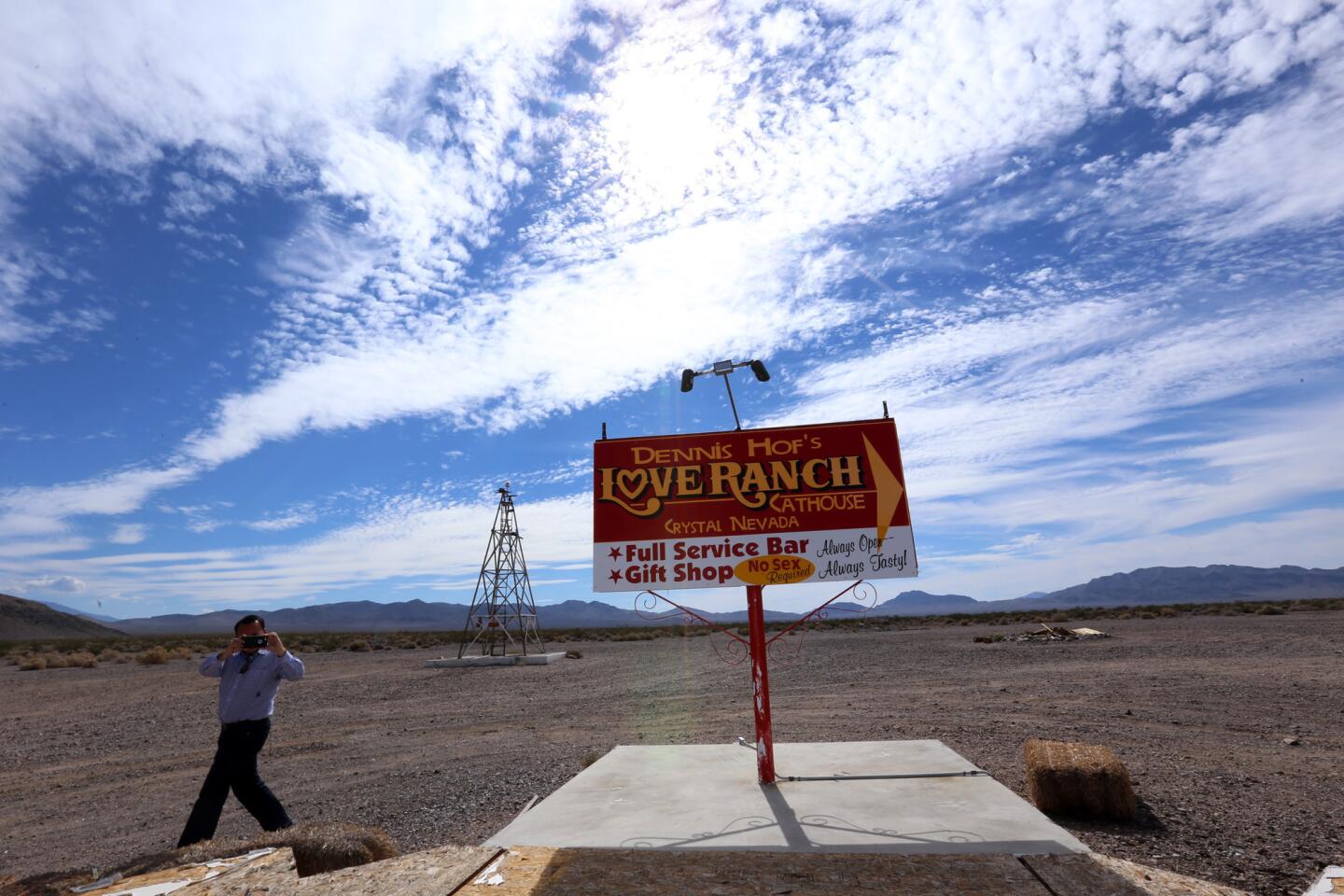In Nevada, there is little love left for brothels
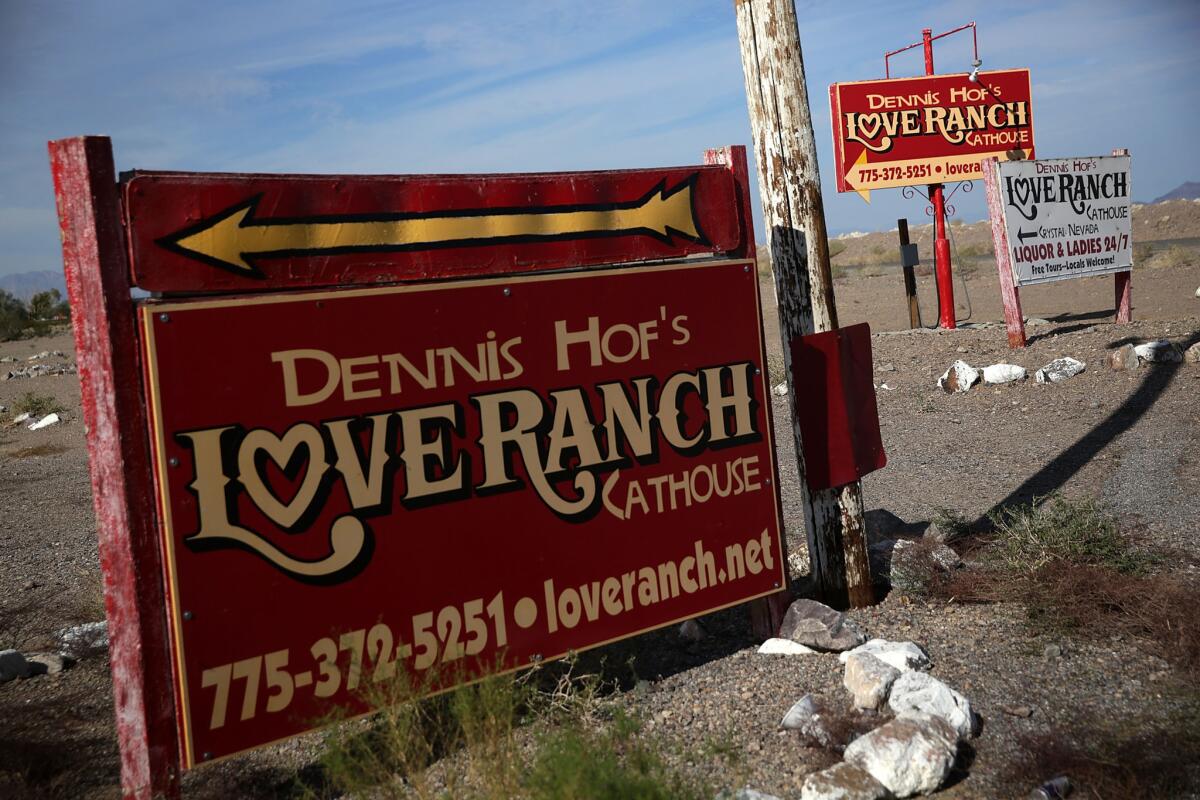
Former NBA player Lamar Odom was found unconscious at the Love Ranch brothel in Nevada.
Reporting from Crystal, Nev. — When Lamar Odom was found unconscious Tuesday in a Nevada brothel, he’d wandered far off the beaten path of adult entertainment culture, back into an analog version of an increasingly high-tech sex-play universe.
Like Wayne Newton and mobsters wielding tommy guns, the antics of the world’s oldest profession smack of a bygone era in Nevada. Brothels are under siege, more and more considered outdated and distasteful — even in the only state to sanction prostitution.
Legalized in Nevada in 1971, these so-called pleasure dens, many believe, are on their last legs.
See the most-read stories this hour >>
“These brothels are really a relic of the past. Even here in Nevada, they’re relegated to what we call the cow counties,” said state Sen. Richard S. “Tick” Segerblom. “The urban areas have an appetite to abolish them. And given the state’s rapid urbanization, there’s really little popular support left for these businesses.”
These brothels are really a relic of the past. Even here in Nevada, they’re relegated to what we call the cow counties.
— Richard S. “Tick” Segerblom, Nevada state senator
Here’s how bad the situation has gotten.
Thanks to the anonymity of cyberspace, naughty adult hookups can be had at the click of an icon, rather than through boozy all-male joyrides into the Nevada desert.
Contrary to its reputation, Las Vegas does not condone legalized prostitution. The state’s 17 brothels, with 300-odd legal prostitutes, are isolated businesses — shady hideaways with names like the Love Ranch, Angel’s Ladies and the Cherry Patch II.
Although 12 of Nevada’s 16 counties allow brothels, the nearest one to Sin City is an hour’s drive away. George Flint, Nevada’s last surviving brothel lobbyist, retired this year at age 81, a move that left the struggling industry without a voice in the legislative halls of Carson City.
Flint’s job had become more difficult. Despite his folksy backslapping style, his message was shunned more and more by a new generation of elected officials.
In 2010, when Flint approached Barbara Buckley, then speaker of the Assembly, about allowing legalized prostitution in Las Vegas and surrounding Clark County, she winced. “She said, ‘George, get the hell out of my office,’” Flint recalled in a recent interview with The Times. “I told her, ‘I get the hint; I’ll come back later.’”
This year, most of the 17 freshman lawmakers in Nevada avoided Flint like a bad cold. “Another anti-brothel movement can’t be far off,” he said with a sigh.
But wait, it gets worse.
A few years ago, the famed Mustang Ranch threw a steak-and-lobster party for legislators. Three showed up. Only a few of the legal brothels make a profit, Flint said. Most clients pay a few hundred dollars per visit. Special requests — and there’s a lot on the menu — drive the bill up even more.
Flint said his last budget for political contributions made by the Nevada Brothel Owners Assn. reflected the plunge in the industry’s fortunes, dropping from $100,000 annually to $20,000.
Sex tycoon Dennis Hof, who owns seven brothels in the state, including the Love Ranch, where Odom was found unconscious, has waged a public relations campaign to stay relevant.
He recently published “The Art of the Pimp,” a tabloid-like tell-all of the brothel industry, and Hof’s Moonlite Bunny Ranch in Carson City was featured in the HBO series “Cathouse,” which gave a day-to-day look at the lives of the women who work there.
Hof recently made news when he announced that he would begin assisting women in the Bunny Ranch pay off student loans by matching their debt payments. Three years ago, Hof even defended his industry in a speech he gave at Oxford University.
“My life has been a party for 20 years. When you legalize prostitution, you take out all of the criminal elements and get safer sex,” he said. “These girls are educated young businesswomen.”
The Love Ranch is indeed isolated, a collection of roughshod beige buildings a few hours northwest of Las Vegas, not far from the Last Chance Range.
The front area is lined with palm trees and alabaster statues of nude women in suggestive poses. Inside, past the garish, brightly colored signs that line the roadside, wait a small bar, a dancing pole and a glass display case that sells kitschy souvenirs.
The tiny apartment where Odom spent time with two working women looks like any suburban bachelor pad, with portraits of tigers on the walls.
But that isolation, brothel operators say, is part of the appeal of the place.
Brothel spokesman Richard Hunter said the occasional minor celebrity guest will visit, but most customers are not famous: Some are older men looking for company. Others pay just to cuddle.
On Wednesday, when the establishment’s 10 female workers had the day off, Love Ranch Manager T.J. Moore stood outside as reporters waited for a tour of the brothel. Moore wouldn’t say how often Odom visited.
“We don’t kiss and tell,” she said. “That’s why we kept him so well-hidden.”
There are other signs that brothel owners are fighting back against what many consider to be their last gasp.
In 2012, Lance Gilman, owner of the Mustang Ranch, became the first of his kind to win election to public office in Nevada since prostitution was legalized. Gilman won a seat as a Storey County commissioner by a wide margin.
Brothel die-hards insist the industry has outlived other scares — such as AIDS in the 1980s — and can do so again.
But this year, former brothel owner Joe Richards, who once had three establishments, did a bit of verbal hand-wringing over the fate of legalized prostitution in the Silver State. He called Flint’s retirement an omen.
“When George is gone, the industry’s going to be history,” he said.
Well, Flint is gone.
ALSO:
Lamar Odom’s dramatic life, on and off the court
There are 20 warnings on the type of ‘herbal Viagra’ Lamar Odom reportedly took
Lamar Odom still fighting for his life after being found unconscious at a Nevada brothel
More to Read
Sign up for Essential California
The most important California stories and recommendations in your inbox every morning.
You may occasionally receive promotional content from the Los Angeles Times.
